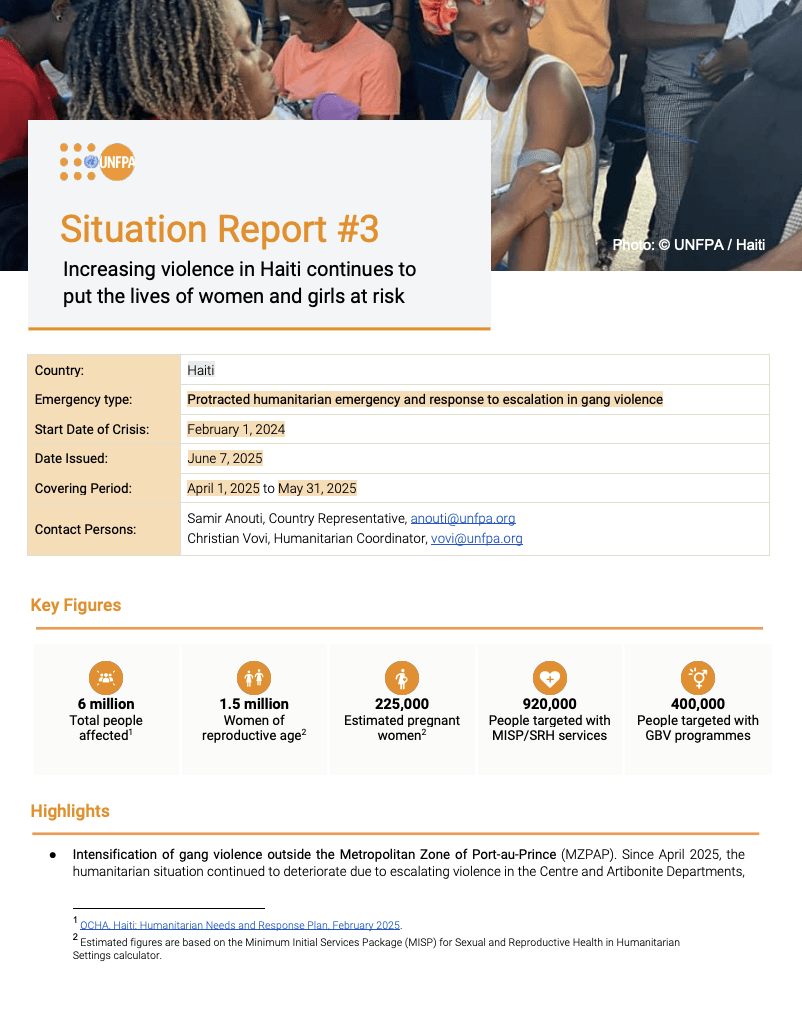
The humanitarian situation in Haiti continues to deteriorate due escalating violence, displacement, and a severe lack of funding. Increased fighting by armed gangs in the Centre and Artibonite Departments resulted in more than 67,000 people displaced, bringing the total number of people displaced across the country to more than 1 million. There is an urgent need for sexual and reproductive health (SRH), and protection services for women and girls’ displacement, but organizations are facing limited operational and financial capacities to respond.
Increases in deportations of Haitians from the Dominican Republic is adding to the complex humanitarian crisis. Among those arrested and deported are pregnant and breastfeeding women, mothers who recently gave birth and are still in pain, newborns and children. UNFPA teams in Haiti and the Dominican Republic are reflecting on a common strategy to strengthen the referral pathway capacity between the two countries to ensure the continuity of SRH services for deported pregnant women when they are reaching Haiti. UNFPA recorded 80 deliveries including caesarians cases weekly among women deported from Dominican Republic to Haitian borders.
Despite limited humanitarian access, UNFPA is ensuring access to critical services through the deployment of integrated SRH/GBV mobile clinics, dignity kit distribution, coordination of GBV prevention and response services, and remote support for survivors of violence via a hotline. Between 1 April – 31 May, 1,257 deliveries were recorded in UNFPA-supported health facilities, of which 500 were cesarean cases. In addition, 23 UNFPA funded mobile clinics delivered SRH and GBV services to 2,481 people residing in displacement sites. 2,932 displaced women and girls.
UNFPA is appealing for US$28.9 million to strengthen and expand access to life-saving SRH and GBV services in Haiti in 2025. As of May, the total amount received by UNFPA for Haiti was US$2.6 million, representing only 8% of the required funding. With the needs escalating in Haiti, additional funding is urgently required to ensure women and girls can access these critical services.

